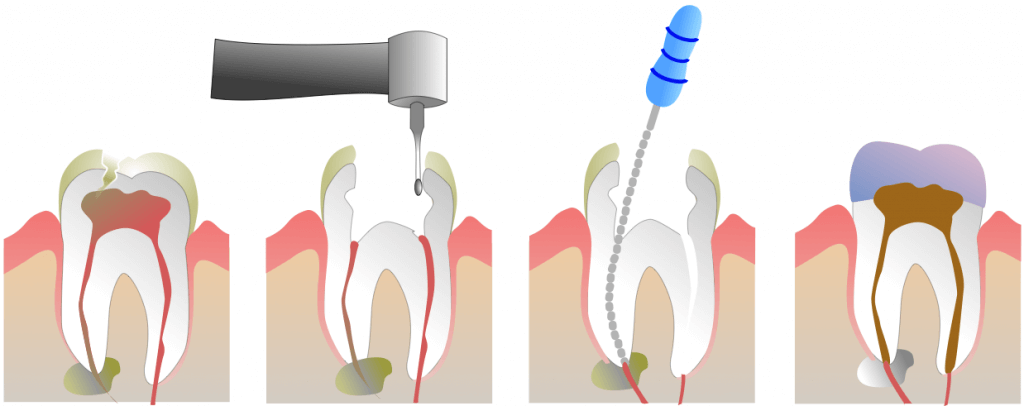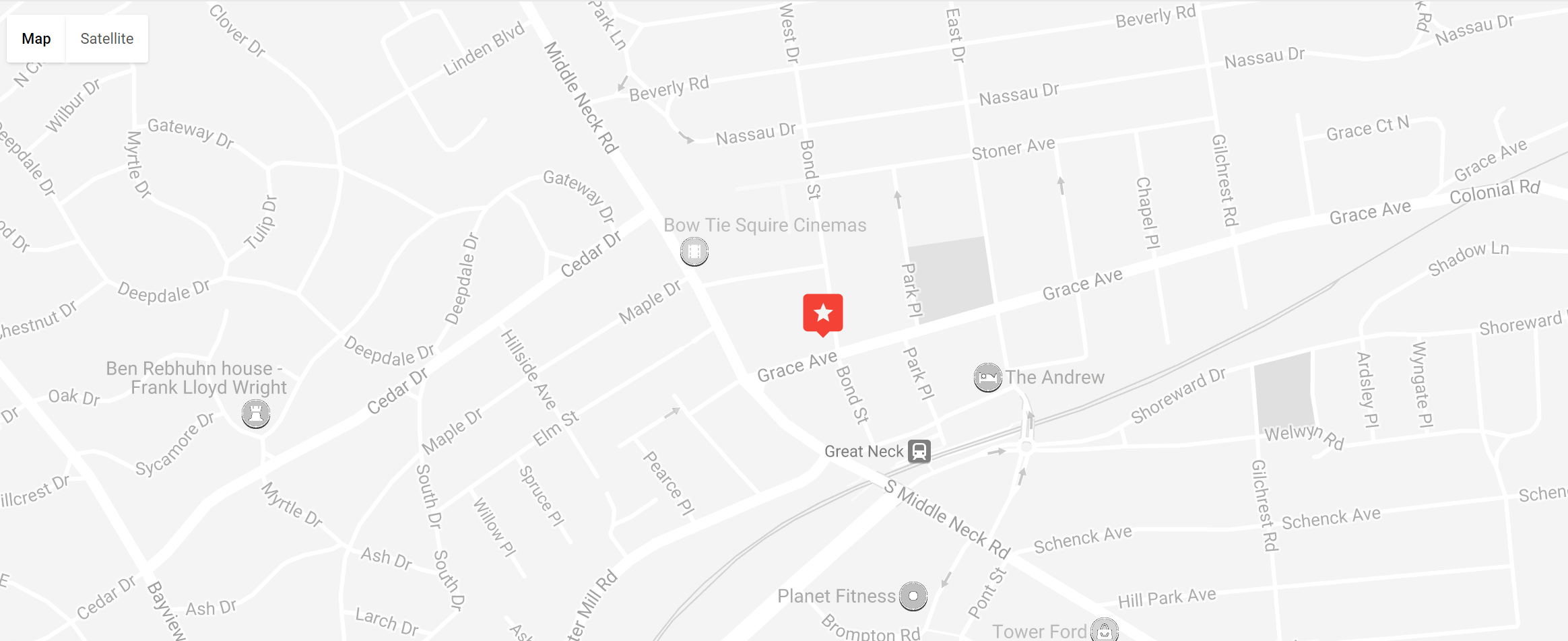Dr. Baharestani
Root canal specialist (endodontist)
Great Neck, NY ,Roslyn, Port Washington, Manhasset, Bayside, New Hyde Park, Albertson, Mineola and surrounding NYC areas.
Root canal treatment is a procedure to treat a tooth that has suffered irreversible damage to the tooth nerve. This damage may have been brought about by decay or trauma to the nerve. Common causes of root canal damage are as follows:
- Tooth decay has penetrated through the tooth enamel and the dentin to invade the nerve and pulp within the root canals and chambers.
- A tooth has become infected or abscessed due to unchecked tooth decay.
- Chipped or broken teeth allow the nerve of the tooth to become exposed.
- Age can cause the tooth to slowly die.
- Past trauma that went untreated or did not require treatment at the time may have progressed to the point of requiring a root canal treatment.
Root canal treatments are essential dental services in being able to prolong the life and use of the tooth. If these serious issues are left unchecked, it can cause abscesses, infections may spread to other teeth or the mouth, and other oral and dental problems can arise.
But how can you and your dentist tell if you need this done?
The Signs You Need a Root Canal
Firstly, pay attention to any pain or symptoms that you might have. Your dentist will question you during your checkups whether or not you’ve experienced any sensitivities or pain, and you must be ready to answer him. Then, the dentist will take a peep in your mouth…
HOW YOU KNOW:
- Severe tooth pain, which often persists for extended periods of time. Pain may interrupt your sleep. This pain is due to the pulp (nerve) dying or becoming infected or abscessed at the tip of the tooth. As anyone who has had a toothache can attest, there are few things in life more painful than a severe toothache!
- Pain radiating into your jaw, ear, or temple areas
- Pain when biting down or when touching the tooth. This pain will be due to the inflammation or infection at the root tip, which feels the pressure of being pressed down into it’s socket. This can irritate the root area.
- Sensitivity to heat is a classic sign of tooth pulp being severely damaged
- Sensitivity to cold, even after the stimuli has gone, such as a glass of ice water. It is not uncommon for teeth to be sensitive to cold, such as the sharp sensitivity after eating a spoonful of ice cream, but normal sensitivity dissipates rapidly and does not linger.
- Darkening of the tooth as compared with teeth alongside it.
- A swelling or abscess on the gum above the offending tooth, often taking the appearance of a pimple. It may discharge pus, have a bad smell or create an unpleasant taste in your mouth.
- Broken or chipped tooth. This is a sign that the tooth has been severely degraded. These conditions usually cause significant pain.
- Signs of other decay, such as cavities or cracking teeth.
While the need for a root canal is usually punctuated by several of these symptoms, you may still have no symptoms, and yet, need a root canal. There are times that a tooth will have died within the socket, and as the nerves are no longer living they are unable to trigger a pain response.
If you’re experiencing any of the symptoms described, contact our office to schedule an appointment as soon as possible.
HOW YOUR DENTIST KNOWS:
When these symptom-less problems appear, it’s vital for your dentist to assess the need for a root canal procedure based off a few observations and simple tests. The objective of your dentist will be to discern if your tooth problems will be rectified by root canal treatment, or if the damage may yet be slowed or reversed, in which case a filling may be a viable option. A good dentist will be able to catch any occurring problems during your routine visits, limiting the amount of damage the tooth will suffer.
Your dentist will observe the condition of the teeth, and check up on any previously performed dental work. He will examine the color and condition of the gums of the teeth. He will also perform an X-ray in order to observe any signs of infection. A condition that has similar symptoms to root canal conditions are periodontal gum abscess, and an X-ray may rule out this possibility.
Other tests he may perform are as follows:
- Application of heat and cold to the tooth – This is done in order to check the health of the nerve and observe your reactions.
- Tapping of the tooth or having you bite down – As noted above, when the root tip is inflamed or irritated, the pressure of being pressed into the socket will trigger pain or discomfort.
- Checking the vitality of the nerve – By utilizing a special device called an electronic pulp tester, the dentist can assess the health of the nerve.
- Routine dental X-rays – These will demonstrate for the dentist any ‘silent’ root canal issues that are not creating the usual symptoms. In these situations, the nerve damage is usually still very minimal and may be rectified with a filling, rather than a full root canal procedure







